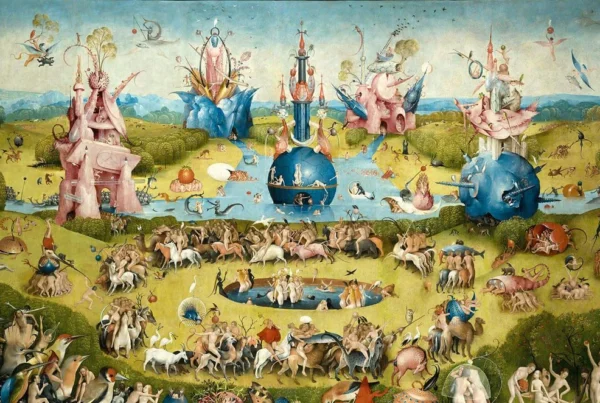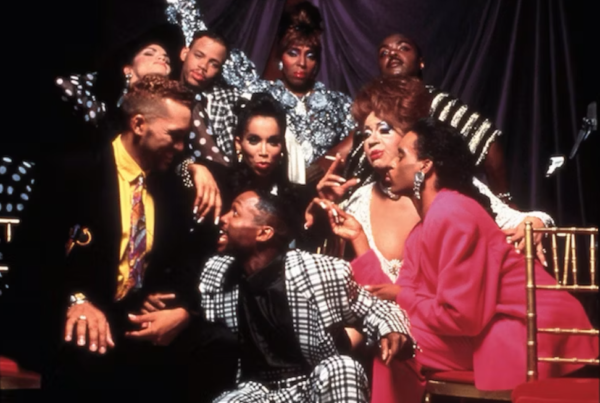 Ratmir: Hello everyone! Today I am meeting with the representatives of two campus associations, namely Nethra Jaygopal, president of the North America-focused association, Transatlantic, and Aliya Zaynullina, a member of the Culture & Awareness Pole at the Asians In Reims Association (AIRA). In late September, there were slight tensions between these two assos, when Transatlantic, in collaboration with Unframed, announced the screening of the movie Borat. For context, Borat is a satirical film about a journalist from Kazakhstan, who visits the US and “discovers Western civilization.” Released in 2006, it received a warm welcome from Western media; however, Kazakh audiences were not similarly pleased. The movie was banned in Central Asian and Arab countries for promoting Islamophobia. Knowing and understanding the implications of this film, Aliya, together with me and Kamila Maral, another student from Central Asia, asked for the cancellation of the screening, which could encourage misrepresentation of an already underrepresented group. Eventually, while the event was canceled, no real resolution or conversation between the associations took place. For this reason, this interview may help different stakeholders gather together and find common ground to understand each other’s perspectives, as well as discuss the use of satire in art, based on the case of the Borat screening.
Ratmir: Hello everyone! Today I am meeting with the representatives of two campus associations, namely Nethra Jaygopal, president of the North America-focused association, Transatlantic, and Aliya Zaynullina, a member of the Culture & Awareness Pole at the Asians In Reims Association (AIRA). In late September, there were slight tensions between these two assos, when Transatlantic, in collaboration with Unframed, announced the screening of the movie Borat. For context, Borat is a satirical film about a journalist from Kazakhstan, who visits the US and “discovers Western civilization.” Released in 2006, it received a warm welcome from Western media; however, Kazakh audiences were not similarly pleased. The movie was banned in Central Asian and Arab countries for promoting Islamophobia. Knowing and understanding the implications of this film, Aliya, together with me and Kamila Maral, another student from Central Asia, asked for the cancellation of the screening, which could encourage misrepresentation of an already underrepresented group. Eventually, while the event was canceled, no real resolution or conversation between the associations took place. For this reason, this interview may help different stakeholders gather together and find common ground to understand each other’s perspectives, as well as discuss the use of satire in art, based on the case of the Borat screening.
To start off our conversation, let’s hear your general opinions. We know that humor is a great coping mechanism to call someone out on a problematic issue without inflicting direct violence. What are your general thoughts on the use of satire as a tool to fight injustice?
Nethra: For me, satire is a good tool to address injustice. But also it can be quite efficient. In today’s world, our attention spans are short, so poignant humor can grab our attention, address the issue, and make us understand it better.
Aliya: I agree. We can find so many examples of different ways to use satire in politics, films, journals, etc. On the other hand, we need to be really careful to know the subject well enough to be able to be satirical about it.
Ratmir: So, would you say that a person must have some preliminary knowledge to joke about certain issues?
Aliya: Yes, especially when it comes to underrepresented groups, historical context is crucial. In democracies, there is this idea of a universal freedom of speech, so the liberty to talk about everything and anything. And while it is important, there also must be some sort of a boundary to it, where one can speak on something only when they have some common knowledge about the subject.
Nethra: I definitely agree that satire needs to be done with context, but I am wondering who gets to decide which issues need context and which don’t? And who provides this context? It is a very idealistic perspective to say that a common agreement or judgment can be made on every piece of art.
Ratmir: So, how would you define who decides this in practice?
Nethra: Unfortunately, the majority makes the decision most of the time. And the authors oftentimes follow.
Aliya: I agree with you, but we can try to change this by establishing some kind of mechanism to prevent satire from infringing upon the identities of other people. I understand that this is a difficult and fairly idealistic way, but we can always try.
Ratmir: Alright, I think we all agree that there can be limits to both the use of satire and the ways to help reduce the harm it may cause. For now, it is done on a case-by-case basis. Our conversation has been quite theoretical so far, so let us apply it to a concrete example – the screening of Borat. Nethra, what were the intentions of Transatlantic when you announced the event?
Nethra: First of all, I’d like to say that it was the decision of the audience, not ours. And we were not looking at this movie as a purposefully derogatory act towards Kazakhs, but rather as something entertaining, a stress reliever before midterms. Obviously, based on the response, we dismissed the screening. Even if the complaints did not come from the majority, we still didn’t intend to hurt anybody with our actions. It’s clear that we didn’t know how this movie affects the Kazakh community. It’s just like a lot of people would not understand the hurtful side of some representation of the Indian community like I do. We are sorry for the hurt, but we didn’t come to it from the angle of being hurtful.
Ratmir: Understood, now Aliya, would you like to share your perspective on the events when they were occurring?
Aliya: For me, the main problem with the screening was the fact that the Kazakh people are not particularly represented. Considering that too few people on campus actually know anything about that region, we were afraid that after the screening of the movie people’s perception of Kazakh people would be negatively affected.
Ratmir: Some Kazakhstan’s ambassadors expressed a positive opinion upon the release of Borat in 2006, saying that it “placed Kazakhstan” on the map. Do you think that any exposure of the underrepresented groups is beneficial as long as it raises public awareness of those groups?
Aliya: Yeah, I think it was the Kazakh ambassador to the UK, who said that Borat is beneficial. The mention of the movie alone raised the tourism rates in Kazakhstan. However, I don’t think he addressed the detrimental effects that the movie bore. Some people like him think that any exposure is for the better. I don’t agree with that – Borat’s example is not telling anything about Kazakh culture. And this is a problem. You can’t pursue representation just for the sake of representation.
Ratmir: I believe that both of your perspectives are valid and not opposed to each other. They just stem from different planes, with Transatlantic seeking to hold an entertaining event, and AIRA seeking to avoid false representation of an ethnic group on campus. And it is the mismatch between the two perspectives that created the conflict.
Now let’s talk more about freedom of speech. On the one hand, Transatlantic has every right to screen any movie they want. On the other hand, everything they post in the public domain, like an announcement of the screening, is open to criticism. What are your thoughts about this dilemma in the case of Borat?
Nethra: It is very true that when we talk about the general public, it is important to ask yourself whether they will understand the satire or take away the underlying message. Nonetheless, the issue becomes more nuanced when it comes to places like Sciences Po. I am of the opinion that if the film had been approved by movie boards, we shouldn’t be worrying how Sciences Po students will receive it. At the end of the day, all of us here are very intelligent, so it is within our capabilities to differentiate between truthful and bad representation, whether it is through satire or a more direct means. Studying political science it is important to be exposed to any kind of literature and media. We study diverse topics, including really racist materials. And I wouldn’t say that such materials should be censored, because I feel that it’s necessary to see these diverse perspectives. So, in the case of Sciences Po, heavy censorship will not be the most beneficial for the student community.
Aliya: Yes, you are right in saying that having censorship at Sciences Po is not the way to go about the issue, but what is important when we talk about such specific movies as “Borat” is to have some sort of a disclaimer or a trigger warning before showing it. You wouldn’t just let people leave afterwards without discussing it and leaving it up to their own interpretation.
Nethra: I completely agree with that. Our initial intention was to have discussion groups at every coloc after watching the movie. And maybe it was our fault that we haven’t communicated it enough. In our minds, it was implied within the announcement, but maybe we could have been a bit more direct and clear.
Ratmir: Last question for you both: should satire be criticized as a genre? Is it useless to criticize satire, since it is just a kind of humor; in other words, “if you get it, you get it; if you don’t, you don’t”?
Nethra: Every genre is open to criticism. Just because it’s humor doesn’t mean it shouldn’t be criticized. Humor can go south in a lot of ways: it can be just plainly unfunny; it might not execute a subject in the right way. But criticizing humor for the fact that it’s in the form of satire or perceived as controversial is… well, a bit weird. Like, criticizing something just to be a hater is not actually the purpose of criticism, in my opinion. So, as long as it’s a justified commentary, it is valid.
Aliya: For me, also, it is case-by-case with any genre. We cannot criticize a genre itself, but rather the specificities through which a certain genre is executed in a piece. We must give specific arguments as to why this is bad, or that is poorly done, or this is not okay, etc.
Ratmir: I think we have successfully reached a consensus on some points, such as the appropriate use of satire, a necessity to have conversations and avoid censorship, and the importance of being able to justify your critiques. Thank you for this conversation!
Other posts that may interest you:
- The Trouble with ‘Ecocide’
- Carbon dioxide removal – hit or miss?
- Local Victories for Turkish Opposition — A Sign of Hope?
- Are France and Japan a Mismatch Made in Heaven?
- A Reflection on Dark Tourism
Discover more from The Sundial Press
Subscribe to get the latest posts sent to your email.





